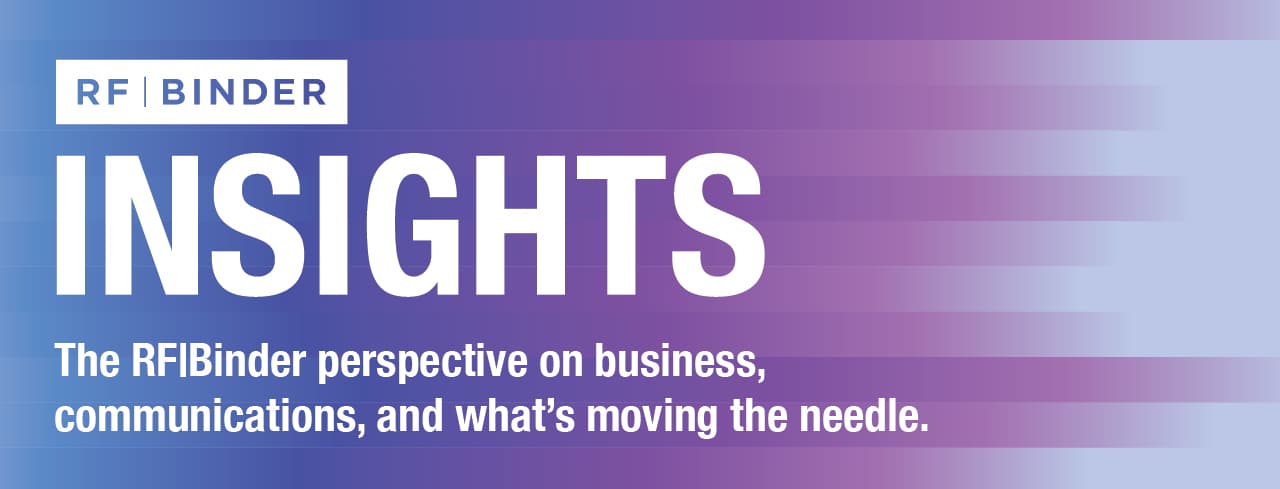The researchers who introduced the acronym ESG in a UN report 20-plus years ago could not have foreseen how their three-letter encapsulation of the challenges organizations face in the environment, social and governance arenas would lead to today’s ferocious political and cultural pushback.
As ESG has evolved, it has had no lack of critics, but the latest attacks are materially more threatening. Federal and state officials – teaming up with outside “anti-woke” advocacy groups — have put corporate leaders and asset managers in new forms of legal peril, forcing them to recalibrate how they communicate the value of their strategies and testing their commitment to ESG’s underlying principles.
It’s worth noting that even some corporate strategists and academics who support ESG objectives have never been fully comfortable with the three-letter formulation. ESG combines technically complex, climate-impact issues such as energy resilience and decarbonization with culturally complex and politically sensitive social issues.
Adding “governance” to the acronymic mix compounded confusion: Governance is of course at the heart of corporate decision-making and authority, so relegating it to the last of the three letters seemed an odd afterthought. The “G” has also put boardrooms on notice as fiduciaries, piling on additional risks they were expected to manage.
The awkwardness of this marriage of concepts came through in initiatives such as the development of rating and measurement frameworks designed to set standards for investors and business leaders. Tellingly, when MIT Sloan School of Management launched a project in 2020 to study inconsistencies in ESG rating systems, it dubbed the initiative “The Aggregate Confusion Project.”
The lack of coherence in defining and measuring ESG gave its critics plenty of ammunition, and targets. That has made it difficult to achieve political agreement on whether and how to turn ESG from a concept into actionable policy and regulatory frameworks.
On one end of this spectrum of critics, climate activists called out ESG rankings systems that seem to give institutional investors a green light to invest in fossil fuel companies and major carbon emitters. “Greenwashing” accusations flew about.
NGOs and activist investors have leveraged ESG-related issues in efforts to force boards to change policies or strategies (not all of which directly relevant to climate or social issues – sometimes, it seems as if ESG was being portrayed as panacea for societal ills).
From the other end of the spectrum, pro-business voices raised doubts about climate-warming science and warned that the staggering costs of abandoning fossil fuels would wreck the economy. Leaders of public companies called out what they saw as an unholy alliance between activist investors and proxy advisory firms that subverted the authority of boards and CEOs.
The latest attacks on ESG have gone well beyond those criticisms, putting business leaders and institutions in legal crosshairs in ways they had not been previously. The threat level has gone up significantly, so it’s little wonder that they are hunkering down on ESG and its related acronym, DEI.
The chilling prospect of regulatory action or even criminal prosecution has led many big brands to hold off issuing sustainability reports in 2025. Nike, JP Morgan, Constellation Brands and Akamai Technologies are among the list of companies that either have delayed or canceled their reports this year.[1]
Another indicator: The share of public companies in the Standard & Poor’s 500 Index that used ESG in the title of their sustainability reports. In 2023, “ESG” appears in 40% of report titles. In 2025, with nearly half of the companies reporting, only 6% have used the term. [2] ESG continues to appear in the bodies of the reports, though with much less frequency.
DEI shows similar signs of fading. In the wake of anti-DEI presidential executive orders in January, corporate websites have been scrubbed to eliminate references to programs that could run afoul of the executive orders. Working with their legal advisors, corporate communicators have come up with alternate language deemed less likely to result in government scrutiny or litigation.
As one attorney for a leading law firm noted: “They’re trying to thread the needle—stay true to corporate values, satisfy various stakeholders, but reduce legal risk.”[3] In the current hostile political environment, it must seem to business leaders as if they’re expected to thread the needle with a rope.
As companies and institutions shape their communications in this new environment, it’s useful to get a level set on the state of public opinion. Survey data indicates that, while opinion is divided, the public largely doesn’t buy into the extreme rhetoric from either right or left side of the political spectrum. A few points:
Climate deniers remain a distinct minority in the United States, and a large majority of Americans believe that human activity contributes to climate change.
Studies generally find only about 15% of the U.S. population denies climate change outright, a level that’s been stable in recent years. About two-thirds of Americans surveyed by Pew Research Center in late 2024 said human activity accounts for at least some of climate change.[3] 45% said a “great deal” of the change was due to human activity, and 29% said “some” of the change.” “None” came in at 25%.
Republicans, as expected, were significantly more skeptical than Democrats. But even 45% of GOP respondents said human activity accounted some at least some of the change in climate. 20% said a “great deal,” and 35% “some.”
The Pew results are consistent with Gallup data in polling as recently as March 3, 2025. In that survey, 62% of respondents attributed climate changes to human activities, 34% attributed it to natural causes, and 4% had no opinion.
Second, there’s bipartisan support for government and business action on climate.
The Pew study found 79% of American respondents are in favor of giving tax credits to businesses for developing carbon capture or storage, an approach supported by some congressional Republicans. A requirement that oil and gas companies seal methane gas leaks from oil wells was supported by 84% in the Pew survey.
If anything, the public wants the government and corporations to do more. Overall, 69% of Americans say large business and corporations are doing too little to help reduce the effects of global climate change. Six in ten also say state elected officials are doing too little on climate.
Democrats are much more likely than Republicans to say each of the groups included in the survey are doing too little to address climate change. For instance, 87% of Democrats say this about large businesses and corporations, compared with 51% of Republicans. But the degree to which even politically conservative respondents generally support these ideas – when removed from more polarized terminology like “ESG” – should not be overlooked.
A key issue remains the perceived tradeoff between economic growth and action on the environment. A Gallup survey in May found that 54% of respondents said protection of the environment should be given priority, even at the risk of slowing economic growth. 38% said they would give the economy priority and just 3% supported a balance (leaving “no opinion” at 5%). The fact that a majority prioritize the environment is positive, but the fact that so few consider a “balance” to be a priority (or, perhaps a viable option) is also striking.
Finally, Americans continue to support the principles underlying DEI but are turned off by the term itself.
Attacks on DEI had already begun to make the term toxic even before the executive orders in January. In a late 2024 survey by the American Association of Public Opinion Research, respondents overwhelmingly agreed with having diverse workplaces, equitable sharing of power in community meetings, and including people of all backgrounds in the public discussion. [4] Within the 21 statements presented – without using the terms “diversity, equity, or “inclusion” – eight in 10 respondents either somewhat or strongly support principles underlying DEI.
Support cracked when “DEI” was explicitly stated in the question. Thirty-one percent believed that “making everyone go through DEI training is too heavy handed”; 41% either strongly agreed or somewhat agreed with the statement that “DEI values and goals are really just brainwashing by the left”; and only 50% were in favor of efforts to promote DEI.
[Note to employers: Gender identity is a highly sensitive area. One of the highest levels of agreement in the AAPOR survey was with the statement: “Requiring transgender athletes to only compete with other athletes that share the same gender they were assigned at birth.”]
Companies have proven adept at replacing their DEI policies with language that lowers their legal risk. At the same time, they’ve continued practices and programs they believe contribute to diversity without drawing regulatory or legal scrutiny.
A handful of large retailers ended DEI programs on paper but have signaled to advocacy groups and individuals that they will continue to offer financial support for some LGBTQ+ Pride and racial justice events. Internal resource groups for underrepresented employees would also be continued, according to some reports.
Time will tell how successful these approaches are, but the official threats keep coming. Costco Wholesale shareholders in January voted down a proposal to curb its DEI policies. That prompted 19 Republican governors to demand that the company notify their states within 30 days with an explanation of why it was not ending DEI. Similarly, Apple’s shareholders voted against removing DEI, drawing a rebuke by President Trump in a social media post.
The Bottom Line: Lean Into Your Values, Not the Buzzwords
At this moment, organizations should lean into supporting their workforce and establishing strong cultures based on fairness and openness. This is a moment in which they should be talking about creating opportunities for their employees and their communities.
On climate and environment, public opinion clearly gives organizations an opening to continue to lean into their sustainability initiatives. But their messages will be most effective when they’re part of a strategic narrative focused on growth and resilience. Organizations should be specific and factual about impact, providing no basis for “greenwashing” attacks.
Tone will be important in this post-ESG environment. “Saving the planet” and virtue-signaling are out of fashion in this environment. The best companies will be perceived as pursuing sustainability to secure the future and safety of their employees, deliver for their customers, and contribute to their community’s well-being while generating returns for their owners.
In terms of language, communicators are already eschewing initialisms and harking back to everyday words. “Socially responsible” is coming back.
The principles behind ESG are as important as ever, but communicating about them effectively takes both nuance and a clear-eyed perspective about what your organization stands for.
[1] https://news.bloomberglaw.com/esg/us-companies-delay-impact-reports-with-dei-esg-under-attack-1
[2] The Conference Board, April 29, 2025
[3] https://www.pewresearch.org/science/2024/12/09/how-americans-view-climate-change-and-policies-to-address-the-issue/
[4] https://aapor.org/newsletters/beyond-dei-understanding-public-opinion-on-diversity-equity-inclusion/

